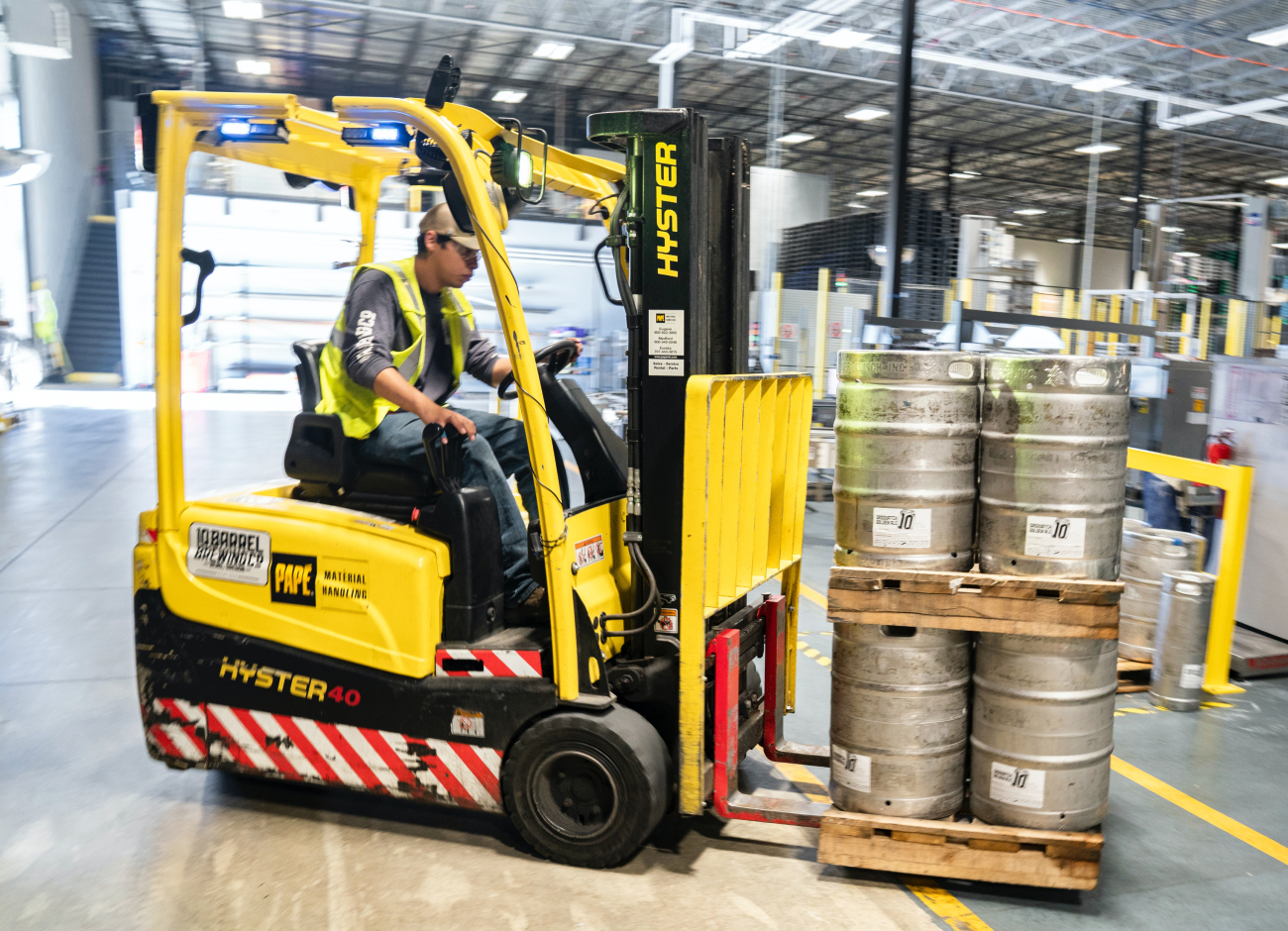Transport and logistics
The logistics sector covers a wide range of jobs, from lorry drivers to warehouse staff, delivery drivers to team leaders, and taxi drivers to postal workers. These jobs play a key part in helping Britain work by delivering people and products to where they’re needed.
Types of roles
Logistics is a really broad industry, often used to talk about the transportation, distribution or storage of goods. Within that there are a number of different areas from supply chain to vehicle manufacturing, and transport planning to traffic management, so it offers a huge range of opportunities. Here are just a few examples of the varied roles on offer:
- HGV drivers
- Bus, rail and tram services (including drivers)
- Warehouse operatives (including stock pickers and fork lift truck operatives)
- Security
- Administration
- Cleaners
- Sales and marketing
Benefits of working in Transport and Logistics
- Some jobs do start at entry level wages but there is usually potential for earnings to rise significantly. Experienced large goods vehicle drivers can earn up to £35,000. For more information visit the National Careers Service website.
- You don’t always need academic qualifications to get started in every role, but there are great opportunities to join with degrees or other studies under your belt. And there are opportunities to learn and build your career too – the increasing complexity of the logistics environment means that many managers undertake Diplomas, NVQs or Masters qualifications in order to enhance their skills and their prospects for career progression. There are many recognised qualifications in logistics for those keen to develop their career.
- The word boredom is not in the vocabularies of most people with a career in logistics. The sheer variety of work always keeps the job interesting. In addition, many companies specialising in logistics deal with a wide variety of materials and goods and international supply chain.
- The Logistics sector is one of the UK’s fastest growing industries and the pandemic has shown how much we rely on it.
- Most of the workforce are men but the balance is changing fast, and there are thousands of women in logistics, spread right across the industry.
- Some – but not all – roles require shift work including evenings, nights and weekends. But there are a wide range of working hours and patterns across the industry with many staff working part time.
- See our related articles below for more information on what it takes to get into this sector, and how others have made the move.
Desirable skills
The logistics sector has job opportunities at every level, from HGV drivers to supply chain analysts. The wide range of roles available means that there is a huge variety in the skills that you can transfer over to a rewarding career in logistics, with plenty of opportunities to progress your career.
Transferable skills include:
- Good attention to detail
- The ability to work independently or as part of a large team
- Excellent organisational and time management skills
- Personal motivation
- The ability to multi-task
- Being able to think on your feet and excellent problem solving skills
- List of Skills in Bootcamps
SUPPORT IF YOU HAVE A DISABILITY OR LONG-TERM HEALTH CONDITION
Many employers in this sector are members of the Disability Confident scheme. This means that they have committed to actions that will provide work related opportunities for people with a disability or physical or mental health condition. You can search for a job with a Disability Confident employer on Find a Job.
Access to Work can pay towards the costs for communication support at a job interview and may be able to provide ongoing practical or mental health support when you get a job. To find out if you are eligible check the latest guidance.
You might be interested in
Sectorau eraill sy’n cyflogi ar hyn o bryd




